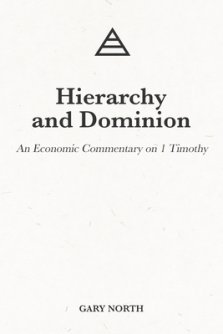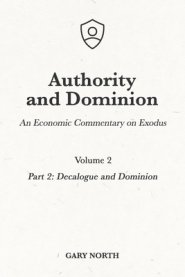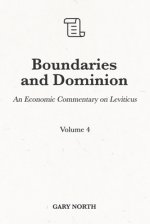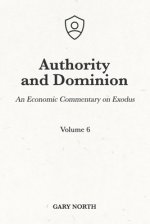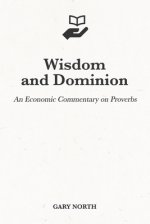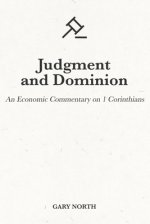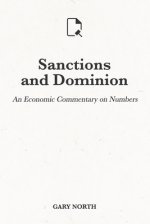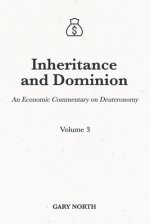An economic analysis of Exodus 20: the Ten Commandments.
The Ten Commandments are most famous, economically, for the phrase "Thou shalt not steal."
In modern times, defenders of the so-called Social Gospel - in fact, a statist gospel - have re-defined this commandment: "Thou shalt not steal, except by majority vote."
The other nine commandments are also relevant to economics, and in this book, all ten are considered.
The book is divided into two sets of five laws each: priestly laws (1-5) and kingly laws (6-10). These are sometimes called the two tables of the law, which is a mistake. They are a single table of laws. There were two copies, each with 10 laws: one stone copy was for the Israelites, the other was God's copy. They were like copies of a contract; each party got one.
The Ten Commandments uphold private property; this galls the Social Gospel crowd, which is why they talk endlessly about the prophets - who preached little on economics - while avoiding Exodus 20.
This book was originally titled, The Sinai Strategy: Economics and the Ten Commandments (1986).
This series, An Economic Commentary on the Bible, is published by Reconstructionist Radio, a producer and provider of Reformed (Postmillennial, Presuppositional, Covenantal, Calvinist, and Theonomic) Christian Reconstructionist podcasts, audiobooks, lectures, sermons, music, and other media. Content is made available from authors such as Gary North (Institute for Christian Economics, Point Five Press), David Chilton, R.J. Rushdoony (Chalcedon Foundation), Joel McDurmon, Phil Kayser (Biblical Blueprints), Greg Bahnsen (Covenant Media Foundation), Stephen Perks (Kuyper Foundation), Bojidar Marinov (Christendom Restored, Bulgarian Reformation), and many more.
Trustpilot


